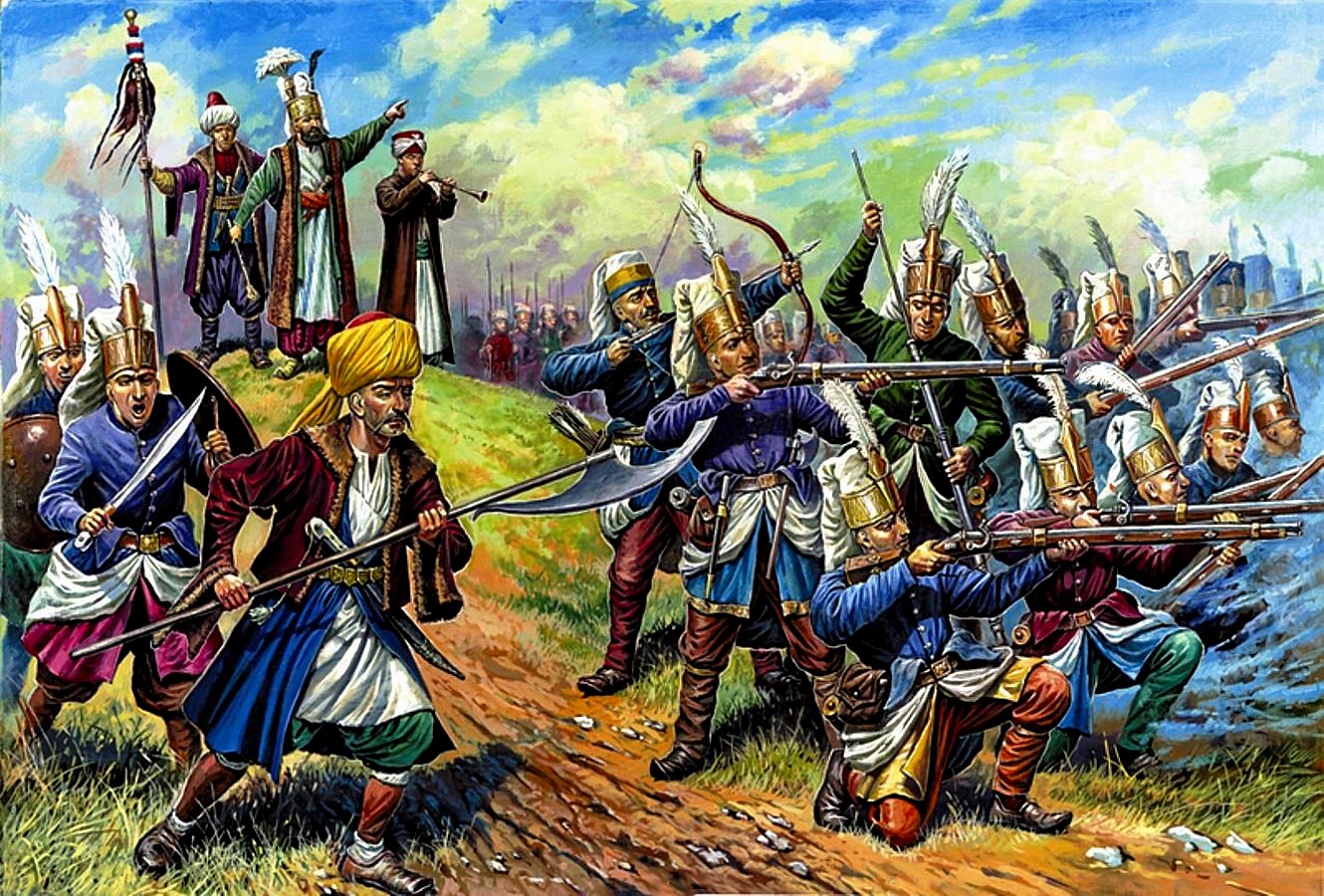 |
While Protestants marched (or burned, or both) in protest in the west, and with Constantinople long lost to the unstoppable Janissary thrusts in the East, and with a tenuous and fragile relationship with with papacy, set against an all-out death feud with volatile (Imperial) France, Charles' decision to abdicate and split the Holy Roman Empire was a move that shaped history, and Ghisilen's notes provide a unique glimpse into the sixteenth century Hapsburg perspective.
The perfect storm afflicting this powerful legion of European families coincided with the meteoric rise of a succession of brilliant Turkish commanders paralleled in history perhaps only by the Rishindun themselves. Many westerners in the twenty-first century may not be aware of just how close they came to speaking Turkish and worshiping Allah, but the preservation of Christianity itself can likely be attributed (in part, at least) the Charles' division of the Holy Roman Empire in 1555. The problems in the west were primarily political and theological. In the East, however, pretense was laid aside in the face of practical urgency. Those squabbles of priests and protestants and the constant treachery of the french only undermined the emperor's ability to focus the necessary forces against the tide of Islam. The acuity of leaving the Spanish diploma-sphere to Phillipe II and the concerns of Austria and the HRE to Ferdinand can not be undervalued.
The explosive assent of the Ottoman empire after the seizing of Constantinople a century prior clearly posed a visible existential threat to western civilization. Mehmet II penetrated the Balkan peninsula, expanded the Ottoman fleet, fought the Europeans (winning islands in the Agean), suppressed the White Sheep insurgency in the east, and within thirty years were bearing down on Venice. Selim the Grim rose to power while Charles was still a boy (though to be fair, so did Charles), conquering North Africa, Arabia, Iraq, Syria, Palestine and Egypt. Selim overpowered the Safavid challengers at Chalderan, exacted tribute from Mecca, and reclaimed the Holy sites there and in Jerusalem, which wouldn't be returned for four centuries, and even then only under extreme duress and controversy. Charles' own contemporary Turkish nemesis, Suleiman the Magnificent, is destined to enjoy his throne ten years longer than his foe, and as scary as they come. By the time Charles ascended into the the helm of the Hapsburg coalition, Suleiman was making his moves on Belgrade in Serbia. Over the coming decade he would detour to smash the troublesome pirates of Rhodes, and return to the fields of Mohacs to crush the Hungarian resistance. Charles knew their threat from the first siege of Vienna in 1529, after which, the ramblings of Martin Luther at the Diet of Augsburg must have seemed so very pedestrian and detached. As Janissaries populated garrisons in Austria's front yard, Suleiman pressed on in all directions, to Algiers, Baghdad, Tabriz, Iraq, and Iran. Had he pressed all his forces against Vienna instead, no system of alliances could have stopped him from steamrolling his way to the English channel.
Alternatively, the descendants of Suleiman fail to live up to his legacy, and the Ottoman power begins to fade. As boys, they are no longer sent to govern provinces, and as a result come under the conspiratorial influence of the Harem. Patronage and cronyism quickly depleted the administration of genuine talent. The Janissaries engaged in a series of revolts and coups, while also competing with the Sipahi for political control. While thus entrenched, the Turks lost Belgrade, unraveling the epic efforts of Suleiman the Magnificent. The Austrians counter-surge and punish the Turks, who lost Greece to Venice, Ukraine to Poland, and all of Hungary to Austria, under the 1699 treaty of Karlowitz.
When Ghizilen wrote of Janissaries drinking until they passed out, it is fair to suppose he quietly considered boozing up entire camps for Trojan style slaughters. It is prudent to assume that his descriptions of the distinctive garb of this warrior menace were intended to aid in recognition, for as he noted, they could easily be mistaken for common monks. It is safe to suggest that Charles and his sons were fortunate, and that history could easily have gone differently. What is not permissible, however, is the belief that anyone in Hungary at the time of Ghizilen's visit would have been dismissive of the Janissaries. Those guys never did anything halfway.
Image Source: http://img2.wikia.nocookie.net/__cb20130617224030/deadliestfiction/images/8/81/Sultan_and_the_janissary.jpg